It is no secret that managing student behavior during math centers can be daunting, especially when you are trying to focus on your small group instruction. However, if you take the time to establish clear expectations and procedures, as well as utilize positive reinforcement, it is possible to maximize learning for all students and keep them on task and learning. In this blog post, we will discuss some strategies for managing student behavior during math centers.
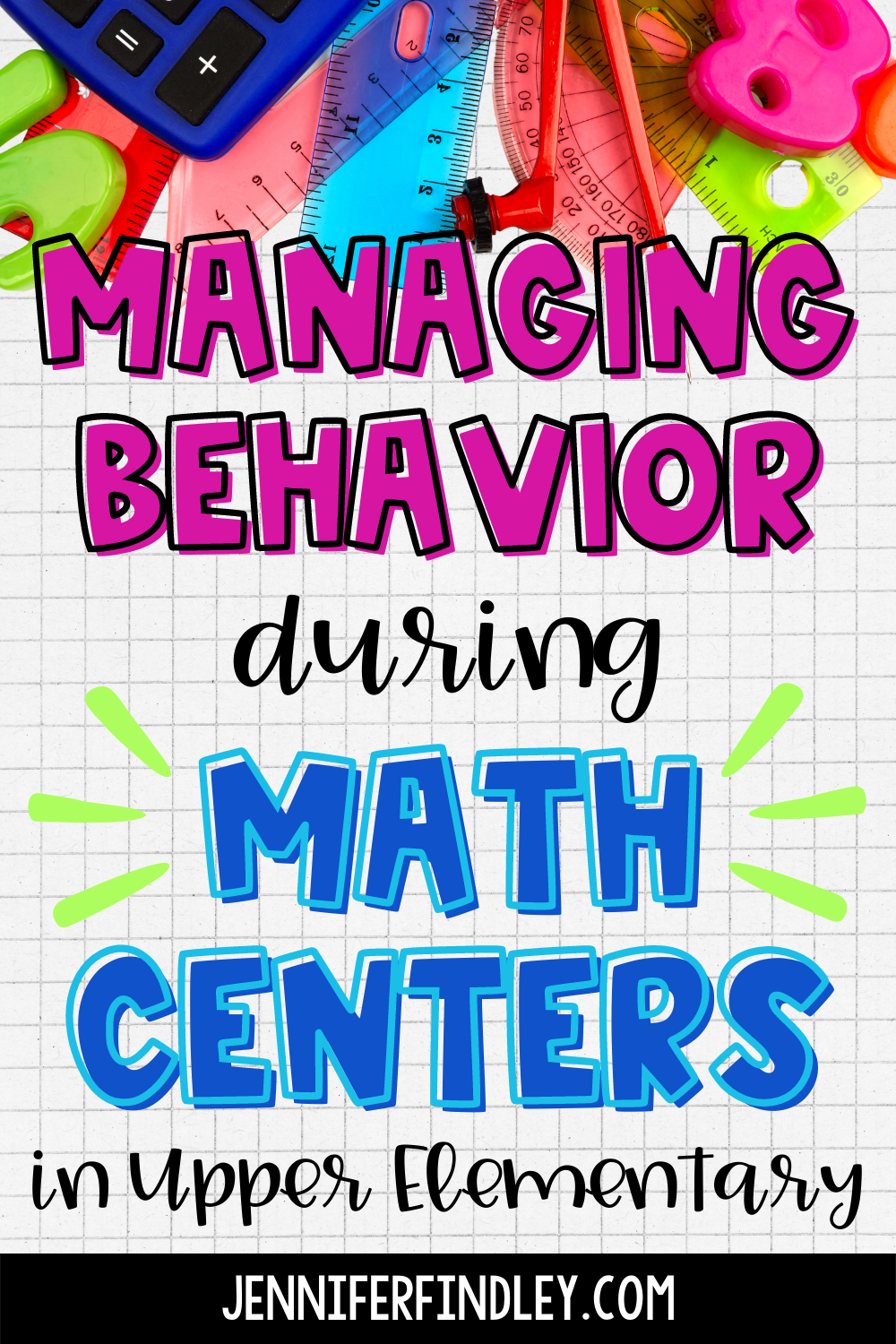
1. Have Clear Expectations and Procedures
My first (and probably most important) tip is to have clear expectations for what the students should be doing and how they should be doing it.
For example: I have my students rotate in a clockwise fashion at my signal. They know at my signal to stop and, as quietly as possible, straighten up the center. Then, they stand facing me. I have them face me so I know they are listening and ready to transition. I also have them hold all of their personal center materials in their hands (notebook, recording sheet, etc.) They move one group at a time to the next center and stand until I signal them to begin. Then they know they are to immediately begin working. Time is short for math centers, so every minute has to be optimized.
Another aspect of managing math centers is having clear expectations for the quantity and quality of work you want completed. I keep my centers very consistent, so I am easily able to require a good amount of work. Click here to read about what I typically have in my math centers. Before centers begin, I make notes on the board and verbally go over the quantity I expect from them (Example: 10 completed task cards, 12 computation problems from the Roll and Answer center, etc) I make a point of checking the students’ work each day we do centers in the beginning of the year, then I spot check the rest of the year.
Click here to read a detailed post about expectations and procedures to teach.
2. Use Group Jobs
This one I have not done as much as the other tips I am sharing, but it may work for you. I have my students in groups of five or six. You could assign super simple jobs to some of the group members (and rotate the jobs out regularly). These jobs will not interfere with the work and will only serve to ensure all students are on task and working. I don’t use this tip as much because my centers are short and intensive (20 minutes) and I have never had a need to use jobs. Here are some example jobs you could implement:
- Materials Manager: Makes sure everyone has what they need to complete a center
- Group Captain: Ensures everyone is working and reports any problems
- Clean Up Crew: Cleans up the center (In theory, you want all the students cleaning up after themselves, but if you have ever seen six kids trying to straighten up a simple station, you know it can get a bit crowded.)
- Group Tutor: My students know to get help from their group members and do so without job assigning, however you could assign a particular student to be a group tutor or go to when other students are struggling with a skill.
3. Positive Reinforcement – Group Points
Another tip for managing student behavior during math centers is to use positive reinforcement to promote the behaviors you want to see more of. This can be done by providing praise and encouragement when students are behaving well and working hard.
I like to do this in the form of group points. Each group can receive points during center time, during transitions, or after centers are completed.
When deciding what you will give points for, think about these questions: When are my students struggling to behave? What task is causing the most interruption? Give points based on what you want your students to improve.
Here are some ideas for giving points:
- Working Well Together: If I see a group that is really working together and helping each other, I may give them a point.
- Excellent Cleanup: Sometimes, I will give a point to the team that does the best job cleaning up the center.
- Perseverance: If a team works particularly hard on a question or task, I may give them a point.
- Work Completion: I may give points for teams that had all team members meet the quantity requirement or for groups that started working immediately and were on task the entire time.
4. Have a Plan in Place for Misbehavior – Alternate Work
This is your secret weapon for managing math centers in your classroom. My students love math centers. They literally cheer when it is math center day (I only do math centers 2-3 times a week).
So, if a student consistently misbehaves in centers or just cannot get their act together, they have to complete alternate work by themselves at their seat. The alternate work could be a packet of printables, a few pages from the math textbook, or even part of the center the other students are completing.
This is one of those things that only has to be done about once or twice. Just enough for the students to know you mean business and are not bluffing. This could even be done on a larger scale with the entire class completing the alternate work, if necessary.
Need Math Centers?
Shop This Post
More Helpful Posts about Math Centers:
These posts are super helpful if you are just starting out and would like more detailed information. Just click on the title to be taken to the blog post:
Getting Started with Math Centers
How to Launch Guided Math Centers
FREE Math Center Starter Packs for Launching Guided Math
Guided Math Procedures to Teach
Scheduling Your Math Block for Guided Math Centers
My Top Tip for Making Math Centers Work for Me
7 Ways to Support Students with Math Centers

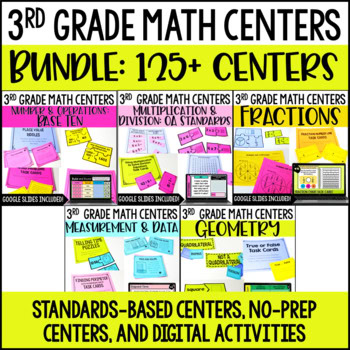
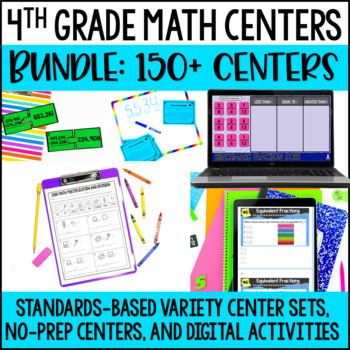
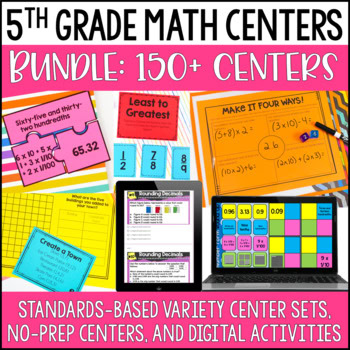
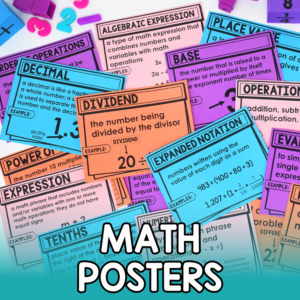
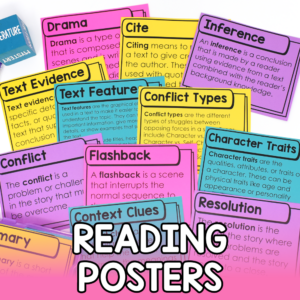




Do you teach a small group while students are rotating through centers, or do you just monitor?
Hi Sara, I teach small groups. My center (Teacher Time) is included in the rotation. For my students, that small group instruction is more important than the other centers. Let me know if you have other questions.
Hi there! Do you have any advice for how to monitor and give group points while simultaneously teaching a small group? I sometimes have a hard time making sure all of my students are on task the entire time while working with my small group. Thanks for the tips!
Hi,
I just wanted to know what do you do if a student does not complete their work in the alloted time at a center? Do they bring their work to the next station and finish up or do you have them stay near (like sit on the floor) that station until they finish then move on?
Love your resources and information!
I am planning to have math centers this year, and your posts have been extremely helpful! I love your ideas and advice about what has worked in your classroom. Thanks you so much.
I teach 5th grade math in Alabama. I am struggling this year with my students. I would so love to co-teach with you for a week or two….I love your ideas!!! You are awesome!
What do you do with your students during this time on the 2 or 3 days that you are not doing math centers?
I am a 6th grade math teacher, and I have 3 classes daily with approximately 90 minute intervals. My teaching methods are very similar to what you have described in your articles. I teach 2-3 times per week for approximately 30 minutes. We then break into groups. For me, I feel groups are more effective if I rotate in and out so the students know I am serious about group time as well as answer questions they may have.